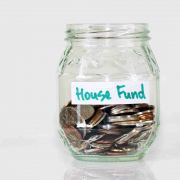Home Appraisals for Rental Properties
Investment Property Appraisals – What You Need to Know
Let’s take a look at investment property appraisals because it doesn’t look like our gold rush of a real estate market is slowing down anytime soon. Perhaps your family has outgrown your home and are thinking of moving but would like to keep your current place of residence.
Mortgages, property taxes, and utilities aren’t going to get much cheaper, so what’s a viable solution?
If you are planning on moving or looking for more passive income, it might be time to rent out your property.
While having a new stream of cash flow can be exciting, you’ll also be taking on the role of a landlord.
However, before you take on this exciting challenge, you’ll need a rental property appraisal first.
At D. Fritz Appraisals Inc., our team offers the most accurate, fair value assessments for rental properties.
Why Rent Out Your Property?
Typically, when people sell their homes, they use the equity they have built in one house and use it on the next. But that’s not always the case.
Some homeowners will convert their primary residence to an investment property, and it’s usually done for one of two reasons.
- A homeowner might do this because the housing market is struggling, and they’re concerned their home’s value has dropped. By renting it out instead of selling it, they can hold on to the property and wait for the value to rise again.
- Another reason to rent out your home is to increase your monthly income. By converting your primary residence to an investment property, your family can enjoy the perks of having their mortgage payments paid for.
But what’s the difference between a primary residence and investment property?
What Makes a Primary Residence or Investment Property?
Whether it’s a house or an apartment, you can only own one primary residence at a time.
If you are buying a home as a primary residence, you may be able to receive lower interest rates and lower down payments. Depending on where you live, you might be able to apply for tax benefits.
An investment property is purely to generate income. If you are purchasing a home or apartment as an investment property, you may need a larger down payment and pay a higher interest rate.
Whether you are converting a primary residence to a rental property or purchasing an investment property, it can have its own set of challenges.
What to Consider Before Renting Out Your Real Estate
One of the most important things to consider is your mortgage agreement. Typically, when you sign a mortgage, you must live in your primary residence for 1 to 2 years. If enough time has passed and you want to convert your primary residence to an investment property, you are free to do so.
When your primary residence changes over to an investment property, your taxes are likely to change. You can benefit from a wide variety of deductions on your taxes, utilities, and much more.
Finally, you’ll need to speak to your insurance company. Switching from your current house insurance to rental insurance will likely increase your rates. This covers your building, but not your renters’ belongings – they would have to get their own renter’s insurance.
With all of these things to consider, it’s time to get your investment property appraised. But how do professionals find an accurate assessment?
How to Value Your Real Estate Rental Property
With income from investment properties at an all-time high, rentals can offer an increasing source of revenue for your family.
While there isn’t just one solution to appraise your property, a combination of different methods can help you find an accurate assessment.
Here are some of the more common ways to value your rental property:
- The Sales Comparison Approach
SCA is one of the most popular ways of valuing residential real estate. This involves a comparison of similar homes that have been sold or rented locally over a certain period.
- The Capital Asset Pricing Model
CAPM is a more comprehensive valuation model. This details the potential return of investment from your rental property and whether or not it’s viable.
- The Income Approach
This indicates the potential income for your rental property, compared to the initial investment. This approach is commonly used for commercial real estate investing.
- Gross Rent Multiplier Approach
GRM will value a rental property based on the amount an investor can potentially collect every year. While it’s easy to measure whether or not a property is worth the investment, this won’t take taxes, insurance, utilities, and other expenses into account.
- The Cost Approach
This model combines the land value and the depreciated value of any home improvements. While this approach can value newer homes reliably, it may not work for older properties.
For more in-depth details about the appraisal process, feel free to contact us with any questions you may have.
Deducting Taxable Income
One of the benefits of owning a rental property is claiming tax deductions for any expenses related to the property. You can claim rental income and additional expenses on “Form T776”.
The most common rental expenses can include:
- Home insurance
- Heat
- Hydro
- Water
- Mortgage insurance
Claiming these expenses will save you money in tax deductions, but why not take it a step further? As long as it’s concerning your rental property, you can claim so much more.
You can deduct additional expenses such as:
- Advertising your rental property
- Bank fees and interest
- Property taxes
- Cable
- Office expenses
- Travel if your rental is in a different municipality
- Repairs and maintenance
- Salaries and management
Some expenses can be deducted in full if it’s spent to maintain the rental property. However, if your rental is a part of your primary residence, you can only claim a certain percentage.
Much like anything home-related, there are always stipulations on how much you can deduct. Check out rental expenses you can deduct from the Canada Revenue site to learn more.
Get Your Fair Value Rental Assessment Today
While there is no one way to appraise the value of a rental property, it’s important to look at the different valuation methods before making an investment decision.
By learning these valuation concepts and researching how to save on expenses, you could be well on your way to getting into the real estate investment market.
At D. Fritz Appraisals Inc., our team has over 40 years of experience appraising homes, offering the most precise assessment according to the market today. Our appraisers are certified, professionally insured, and committed to the appraisal process every step of the way.
Contact us today for a professional appraisal of your rental property.












